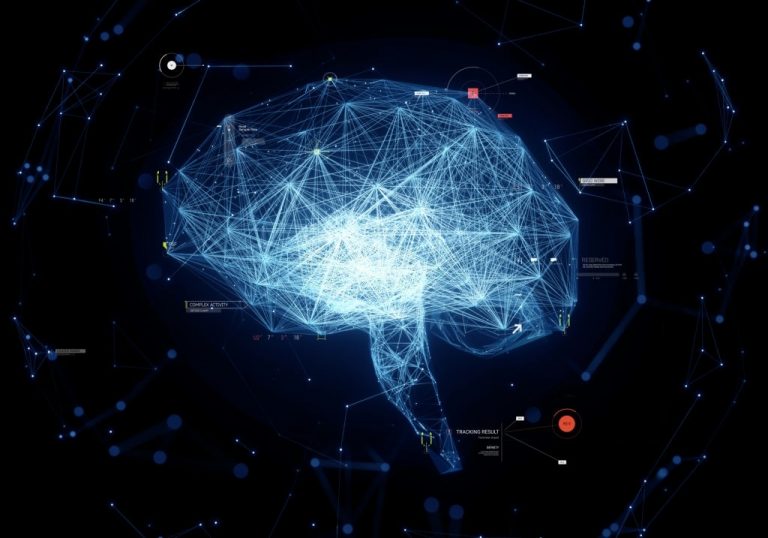
Considering an artificial intelligence course? Good on you – you have your finger squarely on the pulse of one of the world’s most exciting career-boosting study options.
See, AI is changing the way we live and work in big and important ways. The effective use thereof is also poised to overhaul our current idea of the workplace completely. Additionally, it is projected that artificial intelligence will boost the global economy to the tune of $13 trillion by 2030.
But what is artificial intelligence exactly, and how does it work? In this article, we’ll give you a concise overview of interesting and inspiring AI examples, and how it all fits together.
How does artificial intelligence work?
This is a very big question. Let’s start by saying that AI is, at its core, a branch of computer science that infuses machines and programs with the ability to learn and perform tasks. The boundaries of the field are still being defined, but in essence AI helps a non-human entity (also referred to as an ‘agent’) to think and act humanly and rationally.
However, artificial intelligence is also an interdisciplinary science that can be approached and thought about from many different angles, so the definition thereof differs slightly from one field to the next.
We’re going to break it down in terms of the 4 basic types of AI, and provide a few examples of how it is currently being used:
What are the 4 types of AI?
As things currently stand, there are four distinct types of AI. This includes:
Reactive machines
A reactive machine perceives and reacts to the world around it without storing a memory, which means that it does not draw from past experience to inform it’s decision-making. As such, these machines are only meant to complete a limited number of duties and react to a given set of stimuli in the same way every single time. This makes it a very reliable type of AI that is well-suited to take care of repeatable tasks.
Limited memory
Limited memory AI applications can store data, gather information and look to things that occured in the past to inform its decision-making in the present. It requires a team that trains a model in analysing and utilising emerging data by means of six steps.
This includes the creation of training data and a machine-learning model, enabling the model to 1) make predictions, 2) receive human and/or environmental feedback, and 3) storing the data, and reiterating these steps on a loop.
Theory of mind
The ‘theory’ in this term points to the fact that the entire notion is still theoretical at this stage, since we do not have the science and tech capabilities required to develop this level of AI yet.
The thinking is that eventually AI machines and programs should be able to develop insight into how humans, animals and other machines feel and incorporate this into their decision-making. It brings psychology into the mix, and speaks to how emotional fluctuations influence our choices, and might also influence those of machines in the future.
Self-awareness
Following the theory of mind, ‘self-aware AI’ also refers to a theoretical development. This type of AI, it is postulated, will have human-level consciousness and grasp the significance of its own existence.
It will also understand the emotional state of others and use this understanding to figure out what they need, not simply based on the content of communication, but also by how something is communicated.
What are some examples of AI & how is it used?
The current and potential applications of AI are countless. If you’ve ever wondered “What type of AI is Siri and Alexa anyway?” We delve into those examples and more.
Here are a few ways in which it’s already being used to great effect:
Virtual assistants
Virtual assistants like Alexa and Siri are perhaps the most well-known and widely used application of AI we currently have at our disposal. Siri is a product of AI based on speech recognition technology. This AI-based voice assistant is available across all Apple devices, and performs a wide variety of everyday tasks such as making calls, sending and reading texts, setting alarms and reminders, playing music, identifying songs and more.
Cleaning robots
The very popular Roomba floor-cleaning robot is a great example of how AI can be put to good use in non-tech spaces like family homes. It is programmed to scan room size, identify obstacles and remember the most efficient routes so it can clean floors without any human assistance.
Social media monitoring
Social media platforms like Twitter and Facebook use AI to monitor content so it can ban and track hate speech, violence, pornography and other unsuitable content
Takeaway
The applications of AI are virtually endless, and it holds untold value for businesses of all sizes across countless industries. Learn how to take full advantage of these benefits in your career and/or as it pertains to your organisation, with an online artificial intelligence short course designed to suit your needs regardless of your current level of technical proficiency.
BLOG SUMMARY:
A short and sweet look at artificial intelligence and how it is being applied in the world today. This overview provides a good intro to AI and how an understanding thereof can bolster one’s career trajectory in the long run.